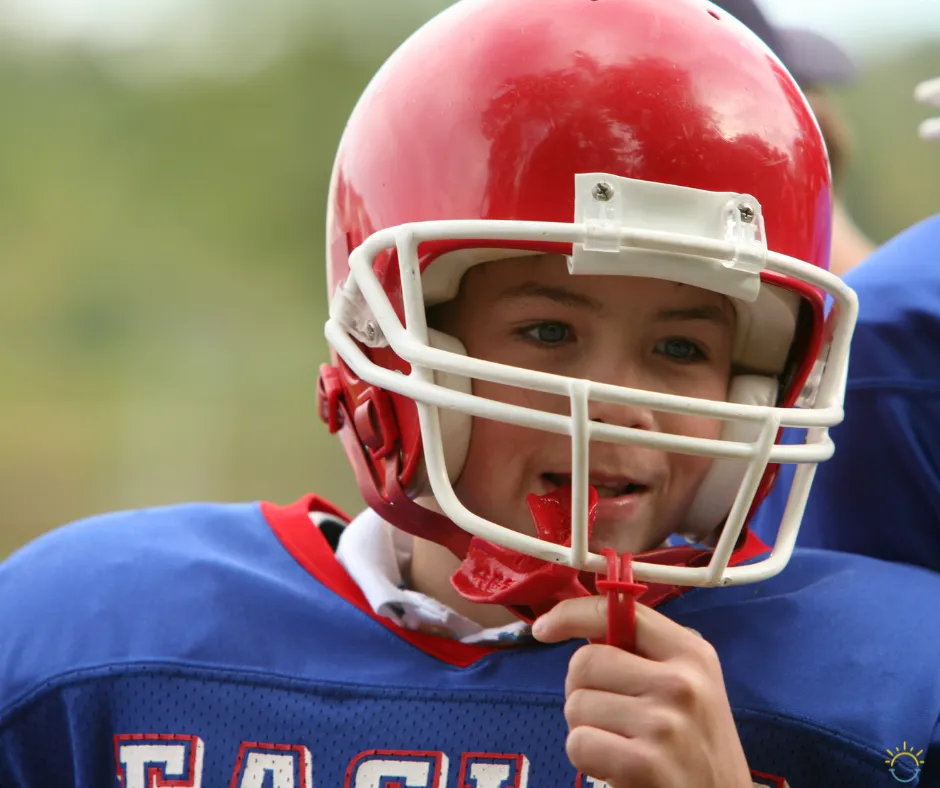Helmets, goggles, and knee pads are a no-brainer when it comes to kids’ sports. But when we talk to parents about mouthguards, they often ask, “Why do we have to do this? Is it really that important?”
The simple answer is yes, it is that important.
Here’s why.
Mouthguards aren’t required for every sport, so it can be easy to forget about it or let it slide, but it’s estimated that over 3 million teeth are knocked out every year in kids’ sports! And if you think that hockey is the only sport that sends parents rushing to the dentist with their kids, you would be wrong.
Mouthguards help prevent chipped, broken, and knocked out teeth. They protect your child’s lips, tongue, face, and also help redistribute forces from a blow to the head. While a mouthguard won’t prevent a concussion, it can reduce the severity of the injury.
Who Should Wear Mouthguards?
Kids aged 8 to 12, who participate in basketball, hockey, baseball, soccer, rugby, football, and lacrosse are typically the most affected by lost or damaged teeth. But even those who participate in non-contact sports or recreational sports like skateboarding, mountain biking, or climbing can benefit from wearing a mouthguard.
Can My Child Wear a Mouthguard with Braces?
Yes, a mouthguard can help prevent damage to the brackets and reduce damage to your child’s soft tissues from the impact. Your dentist will be able to advise you on what’s best for your child.
Different Types of Mouthguards
• Pre-formed mouth protectors can be found at sporting good stores and come ready to wear. They are a one-size-fits-all. They’re bulky, make talking difficult, and provide little or no protection. While they will do the job in a pinch, we do not recommend them.
• Boil and bite mouth protectors can also be purchased at sporting goods stores. They are softened in hot water and then placed in the mouth to shape to the teeth. They are a step above pre-formed mouth protectors.
• Custom-fit mouth protectors are made for the individual using special materials in a dental office. These mouthguards are more expensive than the others, but they provide the most comfort and protection.
An effective mouthguard should be comfortable (if you want your child to actually put it in their mouth on a regular basis), durable, easy to clean, and allow your child to breath and talk effortlessly.
Are you ready to look into a custom-fit mouthguard for your active kid? Summertime is the perfect time! Schedule an appointment with us today.





